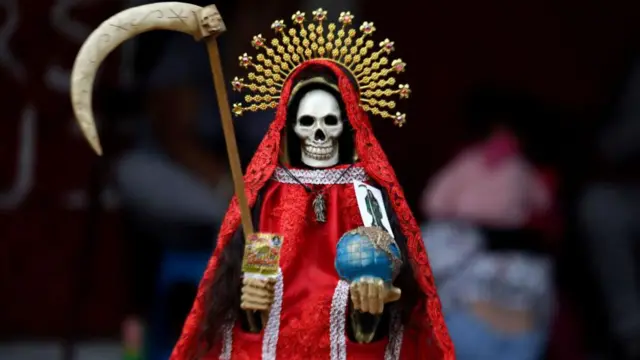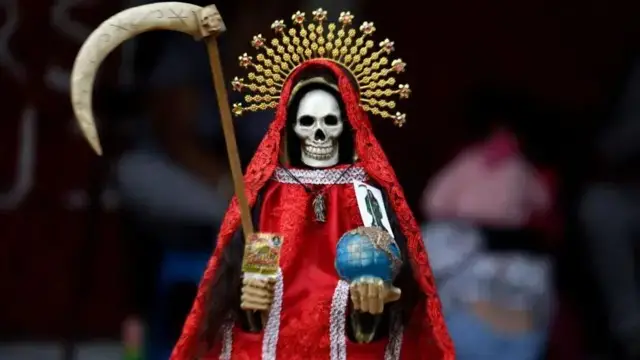
Given the brutality with which organized crime groups operate in Mexico, it is difficult to imagine that they could have any kind of religious belief.
Is it possible that there is a theology behind armed gangs that mercilessly kidnap, torture, kill, dismember rivals and traitors, going so far as to eat human flesh?
Claudio Lomnitz, an anthropologist at Columbia University, United States, believes that there is a spirituality that provides moral support for these criminal practices.
In his book “For a Political Theology of Organized Crime,” Lomnitz delves into the world of religious beliefs of organized crime and its relationship with power structures.
In an interview with BBC Mundo, the Mexican researcher recounts the political, social and religious implications of the cults that operate within the cartels outside the institutions established from what he calls “parallel sovereignties” to the State.
It is in this context that, according to Lomnitz, cannibalism by criminal groups arises.
“Cannibalism is a transgression of the very foundation of public morality,” says the academic.
“There is no greater abomination than that,” he adds.
In this interview, Lomnitz delves into the different types of cannibalism that have existed among criminal groups in recent decades, from an anthropological perspective, seeking the meaning behind the rituals developed by some of the largest drug cartels that have operated and operate in the country.
Gray line
Organized crime groups have their own cults and religious beliefs, as you suggest in the book. What are the political implications of this phenomenon?
Mexico has a State, but alternative spaces of sovereignty have been emerging.
Let’s say that there are several sovereignties of organized crime. They dress as if they had their own armies, they charge a fee, which is like collecting taxes, some groups call themselves corporations, that is, they develop a bureaucracy.
Do these parallel sovereignties also constitute a parallel State?
There is a kind of military bureaucracy with an incipient construction of a State. It is an attempt to build a State.
Another example of this is the typical distribution of gifts by organized crime in this or that locality for Mother’s Day or for Children’s Day.
Or the boss who brings flowers to all the churches in the territory he controls. These are examples of State construction, because when you are already involved in a system of redistribution and you give a food basket to the people of your territory, you are in an incipient construction of a State.
Can it be said that these sovereignties give rise to a political system?
A political system, yes, that is precisely what political theology is about, because it is a way of normalizing negotiations when you have more than one sovereignty operating, as is the situation in Mexico today.
Source: bbc




